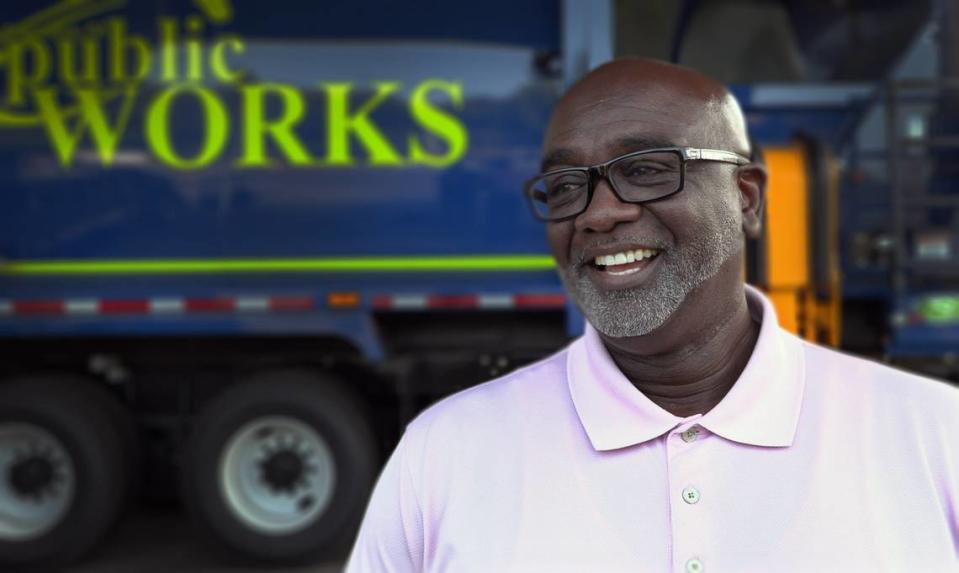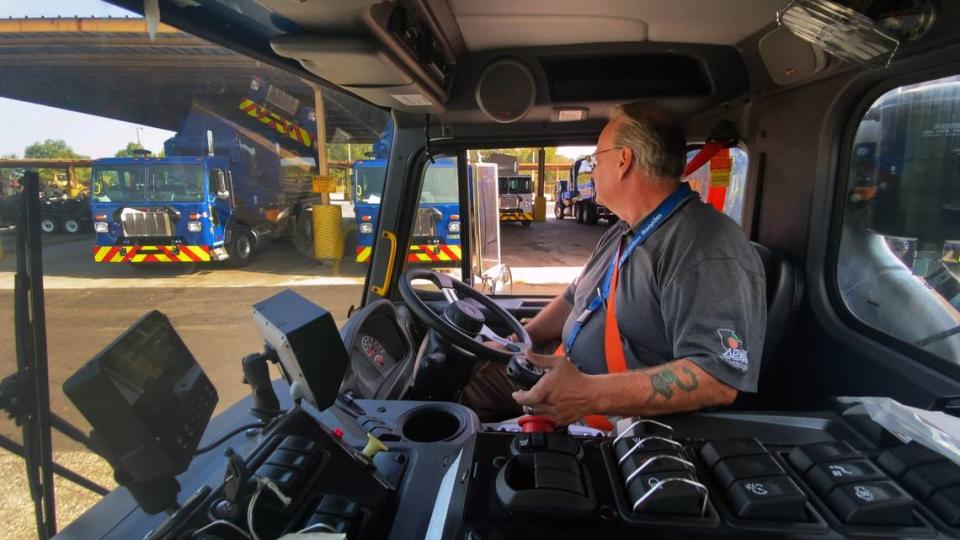New garbage trucks & ‘automated’ trash pick ups are live in Columbus. What to expect
When John Pittman watches his new fleet of shiny garbage trucks roll out Monday, it will herald the dawn of a re-imagined citywide refuse collection.
One person will operate the new “Columbus Blue” automated side loaders instead of the three-person team it once took to collect the city’s tons of garbage.
The $16 million investment in the 40 trucks — the money came from the federal government’s American Rescue Plan Funds (ARP) — comes after the city laid out about $7 million for new 96-gallon black carts that work hand in hand with the new side loaders, Pittman explained. But just about all of that was also paid for with ARP funds.
He sounds like a proud dad watching his kids graduate.
“We are going to get Columbus where it needs to be,” pledged Pittman, the city’s integrated waste manager in the Department of Public Works. “More efficient. Better looking. We want to be able to stand out with excellence. We want us to look good in every area.”

With the new automated system, Integrated Waste will implement the one-cart system asking customers to place all household garbage inside the black cart only and place it at the curb three feet apart for collection. Pittman recognizes it might take some time for residents to acclimate to the new rules of not leaving trash bags on top of the carts or to the side.
”We know it’s going to take some time to get our residents where they need to be,” he acknowledged, noting that old style garbage trucks will continue to pick up the spill over. For now.
“By January, we’ll be done with that,” he said. “We are trying to make that transition, going from a three-person operation to a one-person operation, and that person will take care of everything.”
Impact of the side loaders
The roll out of the trash trucks is the latest step in a plan to automate all city collections, including trash, recycling, yard waste and refuse, he explained, crediting his boss, Drale Short, current Director of Public Works and longtime city employee, for the transformation.
“It’s just progress, and it’s time to take the city forward,” Short said in late 2021 in an interview with The Ledger-Enquirer.
Pittman looks forward to the transition.

“We are going to automate the entire operation,” he said. “Some places can’t do it, like the streets are too narrow to get the trucks down, but for the most part, by the end of the year will be about 90% automated.”
Pittman has been at the job about six months, having spent 30 years in the trash collecting business from Florida to Atlanta.
He said each route used to have three workers handling 650 homes. Now it will have one person handling 1,000 homes per route.
“This creates a lot of efficiency,” he said, noting that the city will no longer rely on inmate help from the local jail. “Currently we need 52 inmates for the trash collection, but with the new system, we don’t need any when it comes to collection.”
No layoffs will occur either due to the automation. Instead, Pittman said personnel will be reassigned within the division.
The changes are a long time coming. Back in December, city workers distributed 20,000 garbage and yard waste carts that can withstand the grabber arm of automated trucks.
According to previous reporting by the Ledger-Enquirer, a major factor is a drop in the department’s inmate labor source. In the recent past, Columbus had one of the largest prison workcamps in Georgia. Hundreds of prisoners collect trash, clean city buildings, maintain roadways and other locations such as golf courses, and dig ditches. The program has existed for nearly 140 years.
It’s a little different now. Inmates from the state prison aren’t being transferred to the Muscogee County camp. Pre-pandemic, 350 inmates were on the Public Works roster. That number now is closer to 130, then-Director of Public Services Michael Criddle said.
While Pittman will not reveal which neighborhoods will see the first new trucks on Monday, he promised everyone will see them at least once by the end of September.
“Yes, we are working it,” he quipped.

